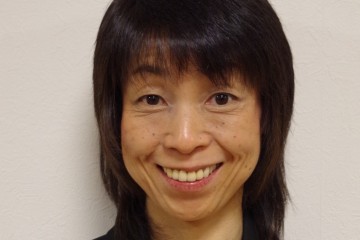第109回 第2版国際法務シリーズ:号外版その2:「サムの息子法」(続々)
今回も第107回と同じく「サムの息子法」に関する「号外版」です(1)。第30回から第32回にかけて取り上げました「サムの息子法」が、突然、いわゆる酒鬼薔薇事件を契機として日本のマスコミで問題になりました。たとえば、平成27年6月20日の読売新聞(朝刊)の36面とか、平成27年7月2日号の週刊新潮の22頁以下など、です。
私がこの「号外版その2」を用意したのは、2015年(平成27年)7月28日のThe Japan Timesの記事:‘Zekka’ fuels debate on ‘Son of Sam’ laws(「絶歌」が「サムの息子法」論議に火をつけた。)を紹介するためです。前回の「号外版(その1)」でも触れましたが、
もし、日本でも「サムの息子法」のような法律を制定するとすれば、少なくとも、つぎの3点に留意すべきです。第1点。すでに第33回および第34回において述べましたように、日本でも「犯罪被害者等の権利利益の保護を図ることを目的」とする「犯罪被害者等基本法」が存在し、この目的達成の具体的施策として、現在のところ、3つの制度があります。①被害給付金制度、②被害者参加制度、③損害賠償命令申立て制度の3制度です。これらの既存制度との関係をどう考えるか?The Japan Timesは、この点について、つぎのように報道しています(3頁5~6欄)。“If those options exist, is there any merit in introducing a Son of Sam law? Tokyo-based lawyer Hiroaki Hoshino, for one, believes a Son of Sam law in Japan would help victims, including next of kin, acquire criminals’ royalties much faster and more easily than they can at present.・・・For example, the Japanese version of the law can be implemented in such a way that you can skip the normal procedure for a damage suit after filing an initial complaint, and just wait until authorities take away royalties from offenders and hand them over to you later,”
第2点。損害賠償命令申立て制度を改良すべきではないか?The Japan Timesは、この点について、つぎのように報道しています(3頁4~5欄)。“Are there any measures in place in Japan to keep criminals from profiting from the publicity of their crimes? Yes, there are laws banning criminals from profiting from their crimes, but the statutes are only applied to organized or drug-related crimes(2). General crime victims can sue accused offenders for damages in civil litigation outside of criminal trial proceedings.・・・the government, as part of efforts to empower victims, established a system in 2008 that purported to spare victims the hassle being involved in initiating a damage lawsuit and collecting evidence. But the system, lawyer Masatami Otsuka pointed out, tends to be disregarded by judges and unfortunately remains underutilized.”
第3点 被害者側の加害者側に対する損害賠償請求権は時効にかからない、とすべきではないか? たとえば、今回のいわゆる酒鬼薔薇事件の場合、被害者側が加害者「少年A」対して損害賠償を請求するとすれば、そのような損害賠償請求権はすでに時効によって消滅している、とされるかも知れません。The Japan Timesは、この点について、上記第1点に関するTokyo-based lawyer Hiroaki Hoshino の提案を紹介しています。
脚注
注1
したがって、いわゆる出国税制度を取り上げた前回第108回で「次回(第109回)では、このような出国税制度(=国外転出時課税制度)が立法された背景などについて述べたいと思います。」と書きましたが、この点は訂正します。
注2
犯罪収益移転防止法(=犯罪による収益の移転防止に関する法律、平成19年3月31日法律第22号)の第2条第1項は、つぎのように規定しています。・・・この法律において「犯罪による収益」とは、組織的犯罪処罰法(=組織的な犯罪の処罰及び犯罪収益の規制等に関する法律、平成11年8月18日法律第136号)第2条第4項に規定する犯罪収益等又は麻薬特例法(=国際的な協力の下に規制薬物に係る不正行為を助長する行為等の防止を図るための麻薬及び向精神薬取締法の特例等に関する法律、平成3年10月5日法律第94号)第2条第5項に規定する薬物犯罪収益等をいう。・・・ つまり、現行の犯罪収益移転防止法は組織的犯罪処罰法および麻薬特例法に定める犯罪収益を剥奪しますが、その他の犯罪収益の剥奪には適用されない、のです。

